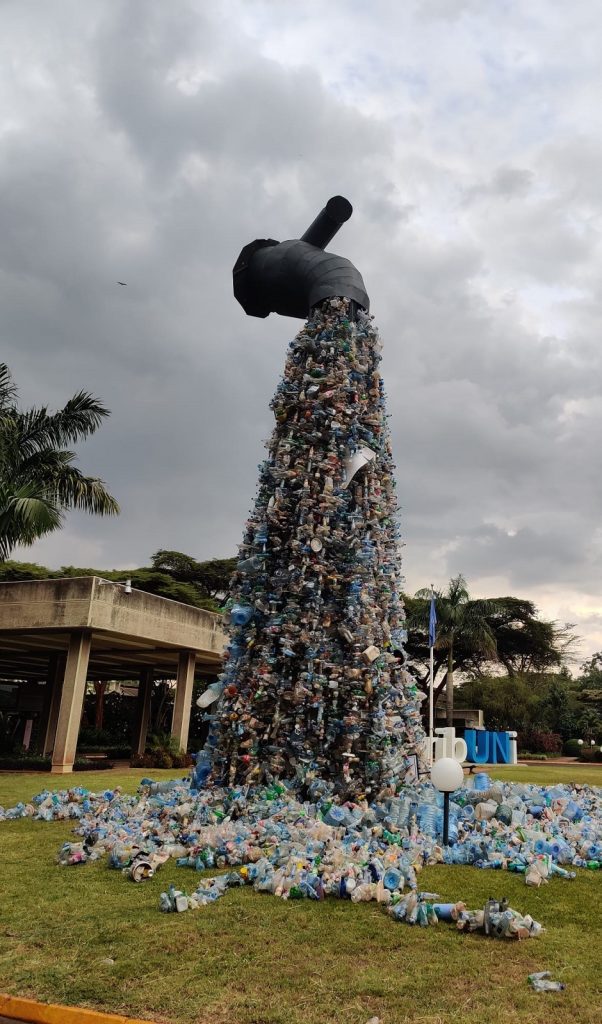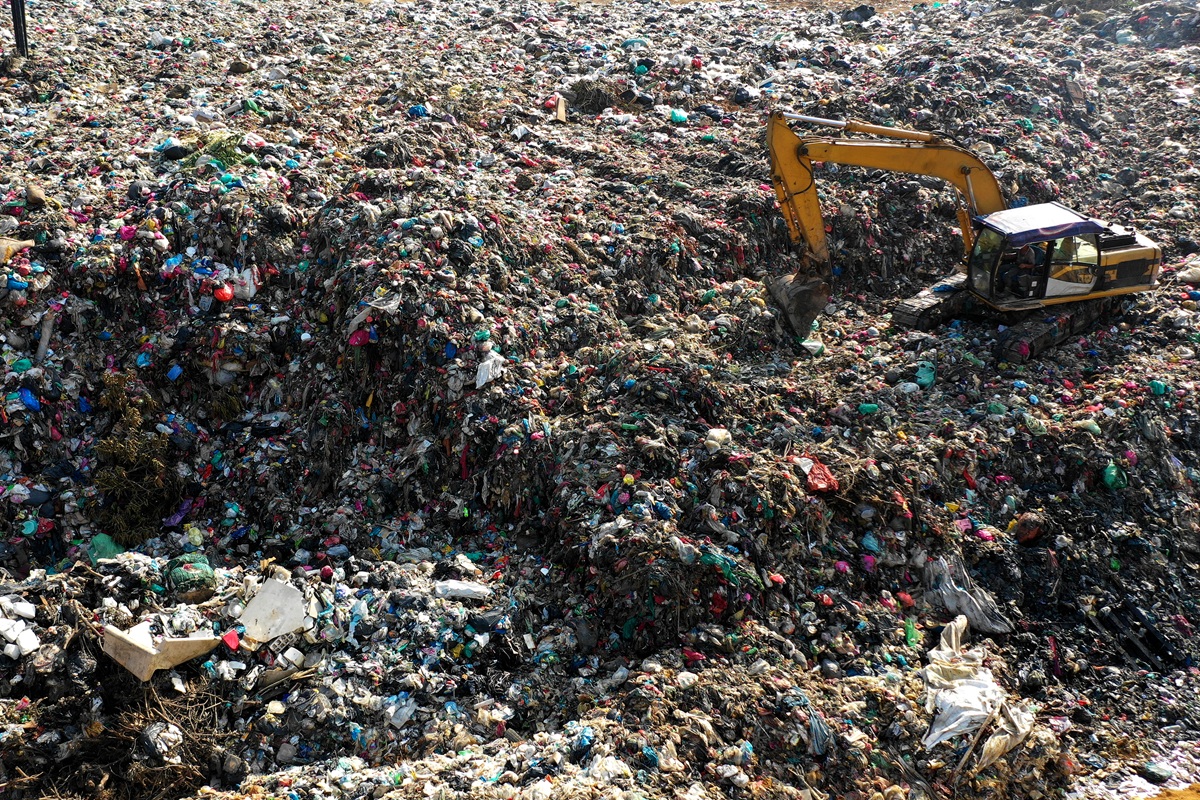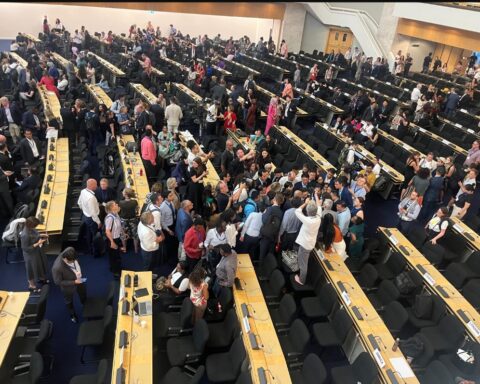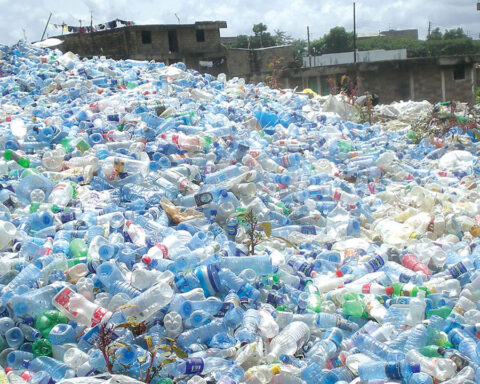Stricter controls on imports of plastic waste into Malaysia come into effect from today (1 July), effectively putting the brakes on ‘waste colonialism’ exports from other countries.
The new rules, a landmark move to protect communities and the environment from plastic pollution, were introduced through the Malaysian Government’s Customs (Prohibition of Imports) (Amendment) Order 2025, which significantly tighten conditions for the import of plastic scrap and exclude shipments from non-parties to the Basel Convention, including the US.
The amended law, published by the Royal Malaysian Customs Department and enforced by the Government-run technology standards organisation SIRIM Berhad, mandates that only shipments from Basel Convention parties may apply for pre-approval.
All imports of plastic waste under HS code 3915 will also need to meet stricter contamination thresholds and undergo pre-shipment inspection.
Previously, China imported more than half of the world’s plastic waste before it introduced its National Sword policy in 2018, which significantly restricted the import of certain types of solid waste, particularly plastics.
High-income countries became dependent on exporting low-value contaminated plastics overseas, and China’s import ban significantly disrupted these flows, exposing global overreliance on waste exports and highlighting deep systemic imbalances.
But rather than taking responsibility and investing in domestic waste infrastructure, exporters and waste traders rapidly shifted operations to other countries in the region with less capacity to manage the influx. For example, in 2020 Malaysia had a 2.7 million tonne discrepancy between what is produced and imported versus what is responsibly managed, as detailed in EIA’s The Truth Behind Trash report.
In the face of this, countries such as Malaysia have taken commendable steps to assert control, introducing stronger rules, increasing enforcement, and sending a clear message that they will not serve as dumping grounds for other countries’ rubbish. These actions position Malaysia among the leaders in the Asia-Pacific region in its efforts to build a more just and accountable global waste management system.
But, fundamentally, the responsibility lies with the high-income countries producing and exporting these plastic waste shipments.
Senior Ocean Campaigner Lauren Weir said: “Since 2018, waste traders have consistently sought out and established themselves in countries with weaker environmental regulations and lower enforcement capacity, rerouting plastic waste shipments primarily from the Global North to the Global South.
“This is why we applaud Malaysia and countries that receive large quantities of plastic waste in taking strong domestic action, not just to close the door on contaminated or harmful plastic waste, but to protect their communities from the health and environmental risks that follow in its wake.”
Since China’s import ban, Malaysia has emerged as a major destination for UK plastic waste exports. Data from the Basel Action Network shows that in February this year alone, the most recent month available, the UK exported 4,200 tonnes of plastic waste to Malaysia.
The introduction of new controls signals increasing public concern and global acknowledgement of the health and environmental harms linked to illegal or poorly managed plastic waste practices.
“Imported plastic waste, especially when poorly sorted or contaminated, is more likely to be mishandled – burnt, dumped or processed unsafely, posing serious pollution risks to local communities,” added Weir.
“At the same time, these shipments can displace domestic recycling efforts by flooding local systems and undercutting local markets.”
The new rules explicitly exclude non-Basel parties, sending a clear message to major waste-exporting countries.
EIA Legal and Policy Specialist Amy Youngman said: “Countries in Europe and the US generate the most plastic per capita and export vast quantities of plastic waste because they often find it economically advantageous to offload their waste onto others rather than investing in domestic infrastructure.

“This practice reflects a form of waste colonialism, where the environmental and social costs of overconsumption in the Global North are externalised to the Global South.”
While the EU has announced plans to prohibit plastic waste exports to countries that are not members of the Organisation for Economic Co-operation and Development (OECD), others, including the US, UK, and Japan, continue to exploit regulatory gaps to export their waste.
“We congratulate Malaysia on its strong efforts to control plastic waste imports and to enforce stricter conditions for shipments, including by recognising the need for international cooperation and multilateral rules under the Basel Convention,” added Youngman.
“Applying these controls only to Basel parties is a strong and justified move, which rightly excludes non-parties such as the US from benefiting from Malaysia’s recycling infrastructure while evading global accountability. Multilateralism must be grounded in mutual responsibility, not selective participation.”
Malaysia’s actions position it as a potential leader in the ongoing negotiations for a Global Plastics Treaty, due to resume next month in Geneva. By taking clear, enforceable steps to restrict plastic waste imports, Malaysia is setting an example of the kind of ambition and accountability the Treaty must deliver.
“Malaysia is showing the kind of leadership we need in the final round of the Global Plastics Treaty negotiations by taking decisive steps to stop harmful plastic waste imports and stand up for the communities most affected,” said Youngman.
“But plastic pollution doesn’t begin at the border. We need governments such as Malaysia to now push for upstream rules that cap plastic production, improve product design, and scale up sustainable waste management solutions. Ending waste colonialism starts by turning off the tap.”
At the same time, high-income countries must stop exporting their plastic waste and take full responsibility for the plastic waste that they generate. The UK, in particular, must commit to ending plastic waste exports through both domestic legislation and binding international obligations.
EIA has long called for such action, including in a letter to then-Environment Secretary Thérèse Coffey, urging the UK Government to ban all plastic waste exports – a demand that remains as urgent as ever.
First published by https://eia-international.org/







